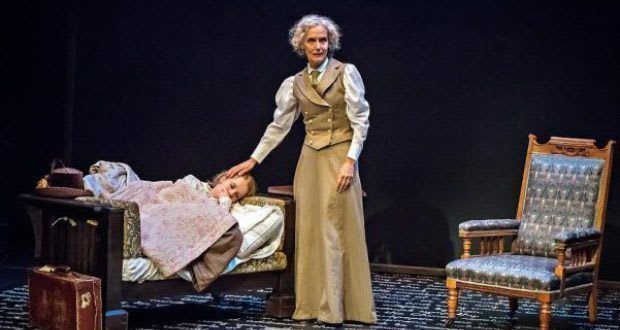Over the past few years, York Theatre Royal has co-produced a series of ambitious, large-scale community shows that demonstrate the city’s passion for theatre and social history. Its latest collaboration with Pilot Theatre, Everything Is Possible: The York Suffragettes, involves over 350 volunteers working in a variety of different capacities, including cast, crew, press and administration.
Whereas previous productions have focused on male-centred narratives—WWI soldiers and factory workers in Blood and Chocolate (2013) and York’s “Railway King” George Hudson in In Fog and Falling Snow (2015)—directors Juliet Forster and Katie Posner have chosen to tackle a specifically female story for their latest production: the suffragettes. York may not be famous for its involvement in the women’s movement, but Bridget Foreman’s play shines a light on the brave local women who ran safe-houses, smashed windows and fire-bombed pillar boxes in the pursuit of gender equality.
The evening kicks off with a mock Women’s March demonstration outside York Minster, with dozens of protestors waving placards (my personal favourite: “sausage rolls, not gender roles”) and buskers whipping up the crowd with feminist anthems. Suddenly, a group of women in Edwardian costume walk through the crowd and we are transported to a suffragette demonstration in 1913.
From here we are led back to the Theatre Royal to watch a drama based on the lives of York’s suffragettes. Over the course of the play, we watch the central protagonist, Annie Seymour Pearson (Barbara Marten), shake off the shackles of middle-class respectability and transform into a courageous, law-breaking political activist. These scenes are interspersed with wider contextual detail, including crowd scenes and newsreel footage of Emily Davidson’s death at the 1913 Derby.
Marten excels in the leading role, powerfully conveying the joys and frustrations of being a suffragette. I particularly enjoyed the scenes she had with her husband and children, which offer us a glimpse into the warm domestic life she risks losing.
Other standout performances include Beth Sitek as Mabel, the Seymour Pearsons’s overworked maid, Loretta Smith as the no-nonsense Leeds campaigner Leonora Cohen, Annabel Lee as the daring suffragette Lilian Lenton and Mark France as Annie’s well-meaning but patronising husband. Some of the more inexperienced performers got swallowed up by the bustling stage, but I was impressed by the overall standard of acting.
The transition from the Minster to the Theatre Royal gives the evening a slightly disjointed feeling, and the play could stand to lose a few scenes, but on the whole there is much to enjoy about this production. It’s a treat to see so many performers occupy the same stage and some of the crowd scenes are thrillingly choreographed. I was also struck by the use of video projection, which merges the performers with the past in a powerful and eye-catching way.
One can’t help but be impressed—and, indeed, moved—by the hard work and effort that has gone into this huge project. It’s a startling achievement.
